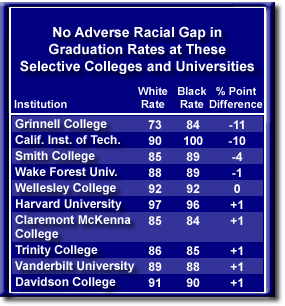Key GOP State Senator in Georgia Calls for Merging Historically Black Universities With Predominantly White Educational Institutions
 The higher education system in Georgia is facing a budget shortfall of $200 million. A high-ranking GOP state senator has proposed that to save costs, the state should consider merging two historically black universities with nearby predominantly white institutions. The higher education system in Georgia is facing a budget shortfall of $200 million. A high-ranking GOP state senator has proposed that to save costs, the state should consider merging two historically black universities with nearby predominantly white institutions.
Seth Harp, chair of the powerful Higher Education Committee in the state Senate, believes that significant savings can be achieved by merging administrative functions and eliminating duplicative academic programs.
Harp proposes that historically black Savannah State University merge with Armstrong Atlantic State University. Savannah State has about 3,000 students, 95 percent of whom are black. Armstrong Atlantic State University has about 6,000 students, two thirds of whom are white.
 Harp also suggests merging historically black Albany State University with two-year Darton College. Albany State enrolls 4,000 students, almost all of whom are black. At nearby Darton College whites make up 55 percent of the 4,700-member student body. Blacks are 42 percent of the students at Darton College. Harp also suggests merging historically black Albany State University with two-year Darton College. Albany State enrolls 4,000 students, almost all of whom are black. At nearby Darton College whites make up 55 percent of the 4,700-member student body. Blacks are 42 percent of the students at Darton College.
State senator Vincent Fort, an African-American Democrat from Atlanta who has served on the faculty at Morehouse College and Morris Brown College, opposes the Harp plan. He told the Atlanta Journal-Constitution, “Black schools serve a purpose of offering not only programs but an atmosphere conducive to black students graduating. The challenge is not only getting African-American students in college but keeping them in.”
The Declining Number of Black Head Coaches in College Football
 During the 2008 season there were six black head coaches among the 120 colleges and universities involved in major college football. Blacks make up about 55 percent of all the football players on athletic scholarships at these schools. During the 2008 season there were six black head coaches among the 120 colleges and universities involved in major college football. Blacks make up about 55 percent of all the football players on athletic scholarships at these schools.
Among the six black head coaches, three will not return in 2009. Ron Prince at Kansas State University and Tyrone Willingham at the University of Washington were not rehired. Sylvester Croom, the only African American to be a head football coach in the prestigious and once racially segregated Southeastern Conference, has announced his resignation.
But there is some good news. Mike Locksley, who was the offensive coordinator at the University of Illinois, recently was named head coach at the University of New Mexico. This week, University of Louisville defensive coordinator Ron English was named head coach at Eastern Michigan University in Ypsilanti.
Demise of Philadelphia Scholarship Program That Benefited College-Bound Blacks
 In 2003 Congressman Chaka Fattah of Philadelphia created the College Opportunity Resources for Education (CORE) Philly Scholarship program. The program offered scholarships of up to $3,000 to any high school graduate in the city who attended a state-operated university in Pennsylvania. Since 2003 more than $24 million in scholarships were awarded. Now the scholarship program has come to an abrupt end. In 2003 Congressman Chaka Fattah of Philadelphia created the College Opportunity Resources for Education (CORE) Philly Scholarship program. The program offered scholarships of up to $3,000 to any high school graduate in the city who attended a state-operated university in Pennsylvania. Since 2003 more than $24 million in scholarships were awarded. Now the scholarship program has come to an abrupt end.
Originally the city of Philadelphia committed $4 million each year to the scholarship fund. Not all the money was used. Funds left over went into an endowment fund for future scholarships. Congressman Fattah had announced his intention to raise $200 million for this endowment fund so that contributions from the city’s taxpayers would no longer be necessary. But only $5 million has been raised.
The current budget crunch has forced the city to end its contribution to the CORE program and Congressman Fattah came to the conclusion that the program could not survive without the city’s support. He plans to use the money still left in the endowment to fund one more year of the CORE Philly scholarships and then he will end the program.
Landmark Building at South Carolina State Gets a Second Life
 Lowman Hall, on the campus of South Carolina State University, the historically black educational institution in Orangeburg, was constructed in 1917 as a male dormitory. Built by South Carolina State students, who in the Jim Crow era were primarily instructed in the industrial trades, the rather staid brick exterior was enhanced by an elegant interior with ornate woodworking and wainscoting. Upon its completion Lowman Hall became the residence of choice for men on the South Carolina State campus. Lowman Hall, on the campus of South Carolina State University, the historically black educational institution in Orangeburg, was constructed in 1917 as a male dormitory. Built by South Carolina State students, who in the Jim Crow era were primarily instructed in the industrial trades, the rather staid brick exterior was enhanced by an elegant interior with ornate woodworking and wainscoting. Upon its completion Lowman Hall became the residence of choice for men on the South Carolina State campus.
In 1985 Lowman Hall was added to the National Register of Historical Places. But after years of deferred maintenance and neglect due to budgetary concerns, the university was forced to close the building. It has remained closed ever since.
But Lowman Hall is currently undergoing a major $7 million renovation. Because of its historical status, renovations are under the supervision of the National Park Service. All of the original woodwork must be maintained. Each window will be taken out, refurbished, and replaced in its original location.
When the building reopens in September 2009, it will house the offices of the university administration.
Yale Scholar to Recite Poem at Obama’s Inauguration
 Elizabeth Alexander, professor of African-American studies at Yale University, has been selected to present a poem at the inauguration of Barack Obama as president of the United States. Elizabeth Alexander, professor of African-American studies at Yale University, has been selected to present a poem at the inauguration of Barack Obama as president of the United States.
Alexander, who will become chair of the African-American studies department at Yale this coming July, is the author of four books of poetry. Her 2005 collection, American Sublime, was one of three finalists for the Pulitzer Prize.
Alexander is a graduate of Yale University. She holds a master’s degree from Boston University and a Ph.D. in English from the University of Pennsylvania.
French President Promises Greater Racial and Ethnic Diversity at Elite Universities
 President Nicolas Sarkozy of France has called for greater racial and ethnic diversity at the nation’s elite universities. Sarkozy said he was disappointed by the nation’s slow progress in achieving greater diversity and he appointed a new official to promote greater equality. An action plan will be unveiled in March. President Nicolas Sarkozy of France has called for greater racial and ethnic diversity at the nation’s elite universities. Sarkozy said he was disappointed by the nation’s slow progress in achieving greater diversity and he appointed a new official to promote greater equality. An action plan will be unveiled in March.
The president plans to reserve 25 percent of the places at elite universities for students who receive state financial aid for higher education. A large percentage of these students are from ethnic minority groups. By 2010, 30 percent of the places will be set aside for so-called state scholarship students.
“We are going to throw open the doors of places where tomorrow’s elite are formed,” Sarkozy promised.
Survey Finds That Black Nontenured Faculty Are Less Happy With Their Work Situation Than White Nontenured Faculty
A new survey by the Collaborative on Academic Careers in Higher Education at the Harvard University Graduate School of Education finds widespread racial disparities in job satisfaction and outlook among nontenured faculty members at 80 colleges and universities across the United States.
Black faculty were less likely than white faculty to believe that they would achieve tenure. Blacks were also less satisfied than whites with the compensation they received. Black faculty also were less likely than their white colleagues to believe that they were receiving help from other members of their department in their professional development. Blacks were less likely than whites to agree with the statement, “If I could do it over, I would again choose to work at this institution.”
In Memoriam
Pinkie Gordon Lane (1923-2008)
 Pinkie Gordon Lane, longtime professor and chair of the department of English at Southern University and former poet laureate of the state of Louisiana, died earlier this month. She was 85 years old. Pinkie Gordon Lane, longtime professor and chair of the department of English at Southern University and former poet laureate of the state of Louisiana, died earlier this month. She was 85 years old.
A native of Philadelphia, Lane was a 1949 graduate of Spelman College in Atlanta. In 1956 she earned a master’s degree from Atlanta University. In 1967 Lane was the first African American to earn a Ph.D. at Louisiana State University.
Dr. Lane’s first teaching job was at Leland College, a historically black college in Louisiana that no longer exists. In 1959 she joined the faculty at Southern University and taught there for nearly three decades. The author of eight books, including four volumes of poetry, Lane was Louisiana poet laureate in 1989.
Elsie Goodwyn Holland (1935-2008)
Elsie G. Holland, educator, politician, and university administrator, has died at the age of 72.
A native of McKenney, Virginia, Holland graduated from high school at the age of 15. She earned bachelor’s and master’s degrees at Virginia State University. In 1975 she completed a doctorate in elementary education at the University of Virginia.
Holland taught in public schools throughout the state and was later supervisor for the Virginia Department of Education. She served on the board of visitors at both Virginia State University and the University of Virginia.
Holland was active in Republican Party politics and ran unsuccessfully for Congress in 1996.
Honors and Awards
 • Tierno Monénembo, a professor at the summer French School at Middlebury College in Vermont, received the 2008 Prix Renaudot for the best novel of the year. He was recognized for his book, The King of Kahel. Monénembo, a native of the African nation Guinea, has written 10 novels. • Tierno Monénembo, a professor at the summer French School at Middlebury College in Vermont, received the 2008 Prix Renaudot for the best novel of the year. He was recognized for his book, The King of Kahel. Monénembo, a native of the African nation Guinea, has written 10 novels.
 • Sandrea Williamson, assistant director of the honor’s program at North Carolina A&T State University, was named Outstanding Adviser by the National Alpha Lambda Delta Honor Society. • Sandrea Williamson, assistant director of the honor’s program at North Carolina A&T State University, was named Outstanding Adviser by the National Alpha Lambda Delta Honor Society.
|

High-Ranking Colleges and Universities Where the Black Student Graduation Rate Is Better or Very Close to the Rate for White Students
Many academics and administrators will be surprised to hear that there are a few selective colleges in the United States that report a higher graduation rate for black students than for whites. Four of the nation’s highest-ranked colleges and universities actually have a higher graduation rate for black students than for white students.
According to the latest statistics from Smith College, Grinnell College, Wake Forest University, and the California Institute of Technology, a black student on these campuses is more likely to complete the four-year course of study and receive a diploma than is a white student.
Also encouraging is the fact that the black student graduation rate is identical to the rate for white students at Wellesley College.
At some other high-ranking educational institutions, the difference in black and white graduation rates is very small. Vanderbilt University in Nashville has an 88 percent graduation rate for black students, just one percentage point below its rate for whites. This is good news because Vanderbilt has been able to reach racial parity in student graduation rates during a period in which it has greatly increased black enrollments. Other high-ranking colleges and universities where the white student graduation rate is only one percentage point higher than the black rate are Harvard University, Claremont McKenna College, Trinity College, and Davidson College.

  |
“The white schools were begun as segregation schools. It’s time Georgia closed that ugly chapter.”
— Seth Harp, chair of the higher education committee in the Georgia State Senate, calling for the merger of two historically black universities with nearby predominantly white institutions (See story above.)
|
New Scholarly Journal on Blacks in Texas
 The first issue of the Journal of History and Culture has been published by the Texas Institute for the Preservation of History and Culture at Prairie View A&M University. The first issue contains articles on art, anthropology, history, architecture, geography, and literature of African Americans in Texas. Executive editor of the journal Akel Kahera, who is an associate professor of architecture at Prairie View A&M, says, “The purpose of JHC is to document African-American history in Texas dating back to the early 1500s and ultimately to be used as a reference for scholars.” The first issue of the Journal of History and Culture has been published by the Texas Institute for the Preservation of History and Culture at Prairie View A&M University. The first issue contains articles on art, anthropology, history, architecture, geography, and literature of African Americans in Texas. Executive editor of the journal Akel Kahera, who is an associate professor of architecture at Prairie View A&M, says, “The purpose of JHC is to document African-American history in Texas dating back to the early 1500s and ultimately to be used as a reference for scholars.”
The journal plans to publish three issues a year.
Historically Black University Teams Up With the U.S. Army to Train Social Workers to Deal With Soldiers’ Substance Abuse and Family Problems
 Blacks make up about 14 percent of all troops in the U.S. Army. But the Army has very few black social workers to deal with the problems affecting African-American troops. The Army believes that more blacks who need help with substance abuse or family problems will seek assistance if there are larger numbers of black case workers. Blacks make up about 14 percent of all troops in the U.S. Army. But the Army has very few black social workers to deal with the problems affecting African-American troops. The Army believes that more blacks who need help with substance abuse or family problems will seek assistance if there are larger numbers of black case workers.
As a result, the Army has entered into a four-year program with Fayetteville State University, a historically black educational institution in North Carolina, to train black social workers. At a satellite campus at Fort Sam Houston near San Antonio, Texas, Fayetteville State University faculty are training active duty Army personnel striving for a master of social work degree. Military personnel in the program must study for two years and do 900 hours on internship training to earn their degree.
University of Cincinnati Law School Seeks to Boost Black Enrollments
 Less than 4 percent of all lawyers in the United States are black. Today less than 7 percent of all students enrolled in law school are black. Less than 4 percent of all lawyers in the United States are black. Today less than 7 percent of all students enrolled in law school are black.
At the University of Cincinnati College of Law, blacks make up 7 percent of the student body. But the administration is committed to increasing opportunities for black students. The school operates its Summer Work Experience in Law (SWEL) program to stimulate interest in a career in law among black students in the city’s public schools. The SWEL program, now in its 25th year, provides summer internships at law offices in Cincinnati to black and other minority high school seniors.
The law school also holds a Diversity Day each winter to recruit black students. Prospective students attend classes and hear from invited guests such as prominent black attorneys and local African-American judges. Dean Louis D. Bilionis says, “We are as aggressive as we can be to attract more and more African Americans to come to school here. We are a school that values diversity.”
Study Proposes That Legacy Admissions Are Unlawful
A study to be published in the Santa Clara Law Review contends that legacy preferences for admission to the nation’s highest-ranked colleges and universities are unconstitutional. The study found that 102 of the 119 highest-ranked universities and liberal arts colleges gave admissions preferences to children or grandchildren of alumni.
The authors of the report conclude that “these preferences reinforce the existing class stratification on the campuses of the nation’s elite schools because the beneficiaries of the preferences hail from the most affluent families in America.” Analysis of congressional intent in the passage of the Fourteenth Amendment and the Civil Rights Act of 1866 show that legislators firmly espoused a belief in the “denial of a preeminence by birth.”
 Steve D. Shadowen, an attorney for the Harrisburg law firm Hangley, Aronchick, Segal & Pudlin and lead author of the study, told JBHE, “Legacy preferences undermine student body diversity. The schools are therefore relegated to arguing that legacy preferences serve the ‘state interest’ of raising money from alumni.” But Shadowen’s findings show that the 102 schools that practice legacy admissions had no fundraising advantage over the 17 schools that did not. He says, “The schools that have recently terminated legacy preferences have not seen a reduction in donations.” Steve D. Shadowen, an attorney for the Harrisburg law firm Hangley, Aronchick, Segal & Pudlin and lead author of the study, told JBHE, “Legacy preferences undermine student body diversity. The schools are therefore relegated to arguing that legacy preferences serve the ‘state interest’ of raising money from alumni.” But Shadowen’s findings show that the 102 schools that practice legacy admissions had no fundraising advantage over the 17 schools that did not. He says, “The schools that have recently terminated legacy preferences have not seen a reduction in donations.”
Shadowen suggests that litigation testing the legitimacy of legacy admissions should be brought against state universities in Florida, California, Washington, and Michigan, all of which have banned the consideration of race but continue to give an advantage to the children or grandchildren of legacies.
“These should be easy pickings,” Shadowen told JBHE.
JBHE agrees that legacy admissions are inconsistent with the system in which admissions to college are to be made on merit rather than pedigree. But we see no basis for the position that legacy admissions are unlawful in the sense of denying students “equal protection of the law.” Nor do legacy admissions violate any other protection of the U.S. Constitution.
  |
18.9% Percentage of African Americans ages 25 to 29 in 2007 who held a four-year college degree.
20.9% Percentage of African Americans ages 55 to 59 in 2007 who held a four-year college degree.
source: U.S. Department of Education
|
Appointments
 • Guy-Uriel E. Charles will join the faculty at Duke Law School this coming summer. He is the Russell M. and Elizabeth M. Bennett Professor of Law at the University of Minnesota. • Guy-Uriel E. Charles will join the faculty at Duke Law School this coming summer. He is the Russell M. and Elizabeth M. Bennett Professor of Law at the University of Minnesota.
Professor Charles is a graduate of Spring Arbor University and the University of Michigan Law School.
 • Tenea Watson Nelson was appointed assistant dean for graduate education and director of the biosciences diversity program at the Stanford University School of Medicine. Before coming to Stanford, Dr. Nelson was a research scientist at Gilead Sciences. • Tenea Watson Nelson was appointed assistant dean for graduate education and director of the biosciences diversity program at the Stanford University School of Medicine. Before coming to Stanford, Dr. Nelson was a research scientist at Gilead Sciences.
Dr. Nelson is a graduate of Mary Baldwin College in Staunton, Virginia. She holds a master’s degree and a Ph.D. in toxicology from the University of Rochester.
• Dalton Jenkins, pastor of the Bethel Temple of Praise Church of the United Brethren in Christ in Yonkers, New York, was named to the board of trustees of Huntington University in Indiana.
• George McCormick was appointed coordinator of graduate recruitment at North Carolina A&T State University in Greensboro. He was the associate director of undergraduate admissions at the university.
 • Danielle Burrell was named director of corporate and foundation relations at Xavier University in New Orleans. She was a career development specialist for the Jefferson Parish Youth Training Center. • Danielle Burrell was named director of corporate and foundation relations at Xavier University in New Orleans. She was a career development specialist for the Jefferson Parish Youth Training Center.
Burrell is a graduate of Xavier University and holds a master’s degree from the University of New Orleans.
Grants
• Marist College in Poughkeepsie, New York, received a $100,000 grant from the William Randolph Hearst Foundation for an endowed scholarship program to help minority students afford college.
• Kansas State University received a three-year, $1 million grant from the Cargill Corporation to recruit and retain black and other minority students in its agriculture, business administration, and engineering programs.
• The University of Florida received a $100,000 grant from the Blue Foundation for a Healthy Florida. The grant will fund a program operated by the department of psychology to foster healthy nutrition and cooking among African-American women in order to reduce the incidence of hypertension.
• Haverford College associate professor of physics and astronomy Stephon Alexander received a $65,000 Foundational Questions in Physics and Cosmology grant from the Foundational Questions Institute. With the grant, Dr. Alexander will conduct research in quantum gravity.
• Samba Gadjigo, chair of the French department at Mount Holyoke College, received a grant from the Sundance Documentary Fund for the production of his film on the life of Senegalese filmmaker Ousmane Sembène.
|